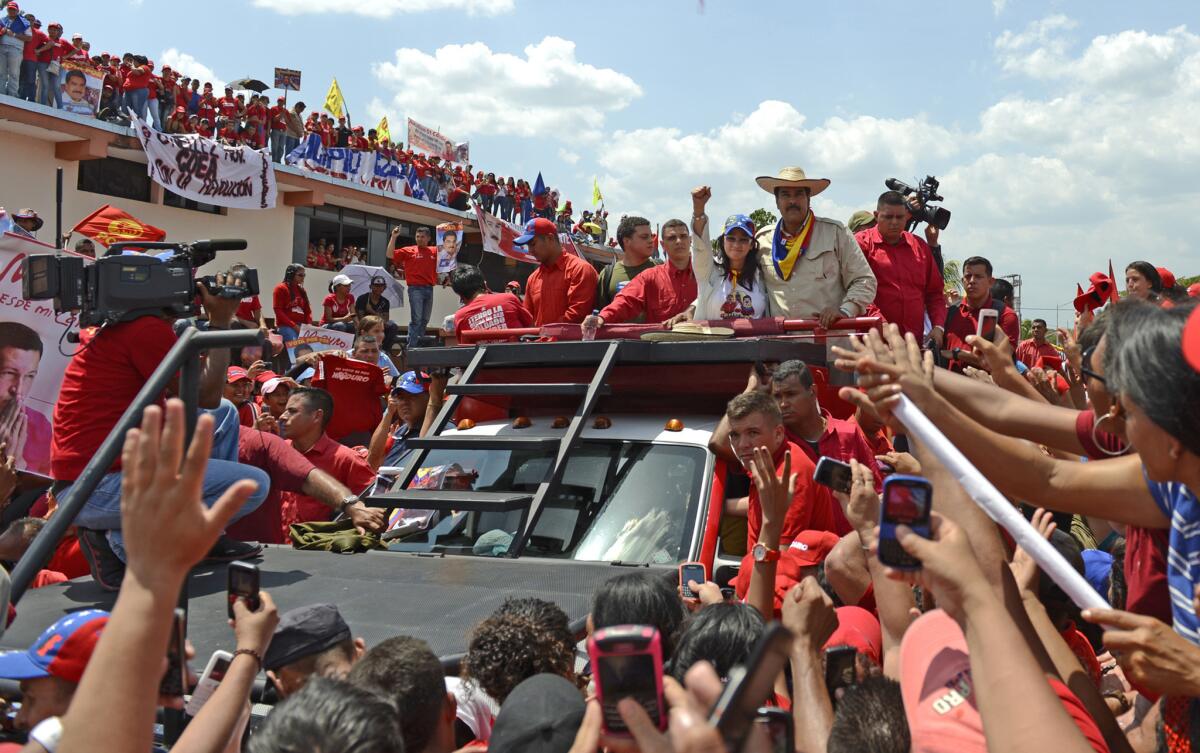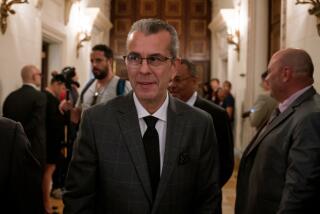Pull back the curtain, Venezuela

- Share via
The campaign to succeed the late Venezuelan President Hugo Chavez is underway, and as with past campaigns in that country, passions are running high. Vice President Nicolas Maduro and opposition candidate Henrique Capriles exchange near-daily attacks, each accusing the other of everything from plotting murder to planning coups.
But unlike in previous elections, the National Election Council has not invited international monitors to observe the April 14 vote. Instead, it has asked a handful of individuals and the Union of South American Nations to “accompany” the process — a far more limited role that does not provide them full and free access to polling places and does not allow them to make public statements questioning or criticizing the process.
The council’s disinclination to open the elections to outsiders is lamentable, because Venezuela would only gain from the presence of monitors from the Organization of American States or the Atlanta-based Carter Center, a nonprofit founded by former President Jimmy Carter. By inviting those organizations to inspect election equipment, observe at polling stations and monitor the ballot counting, among other things, the council might be able to silence those critics who say the government isn’t interested in holding fair and transparent elections, and would make it harder for opponents to challenge the results after the fact. (Maduro should like that; he holds a clear lead in the polls.)
It’s not too late. Maduro could still call on the election council to invite outside monitors to fully participate. In doing so, he would demonstrate the same political savvy that his mentor Chavez did when he repeatedly welcomed the OAS and others to observe elections, beginning in 1998 when he first ran for president. Chavez understood that those international missions could provide legitimacy to his electoral victory both at home and abroad. Having monitors might even encourage greater voter turnout by increasing trust in the voting process.
The council still has time to extend an invitation to international monitors. It should do so.
More to Read
A cure for the common opinion
Get thought-provoking perspectives with our weekly newsletter.
You may occasionally receive promotional content from the Los Angeles Times.






